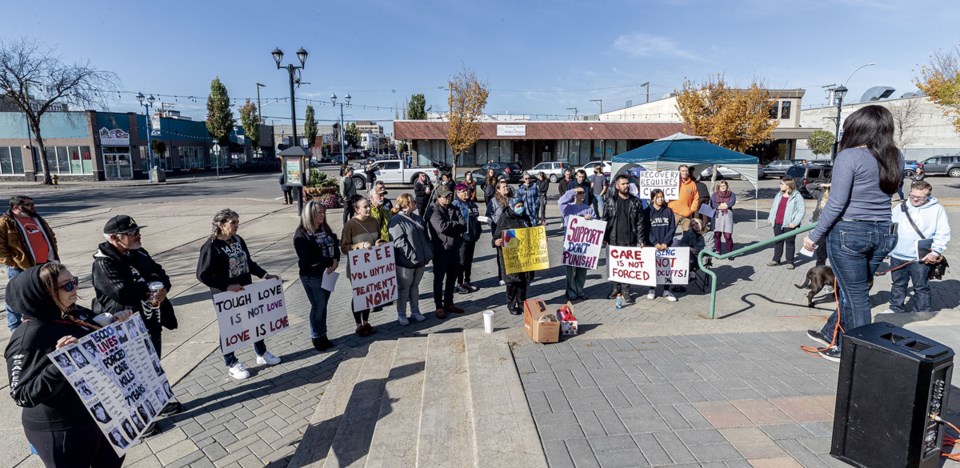When both David Eby and John Rustad are proposing similar takes on the same idea, you know the odds are it will happen, regardless of the election results Saturday.
Both the NDP and the Conservatives are talking about some form of involuntary care for mental health and addiction patients. It’s an old-school way of thinking; we used to “commit” people to psychiatric hospitals against their will, usually for the right reasons, but not always.
There’s already been some opposition to this idea, most visibly last Friday when a group protested the idea outside the Prince George courthouse. But there’s also support.
Whether you agree with the idea or not, you have to acknowledge that British Columbia is grappling with an escalating mental health crisis, and it’s clear that our current approach is insufficient.
Whoever wins on Saturday, the province must take decisive action, not only to support individuals in distress but also to ensure that they receive the care they desperately need. This necessitates a nuanced discussion about involuntary care, which is a controversial yet potentially vital component of a comprehensive mental health strategy.
However, any move toward involuntary treatment must be predicated on the establishment and funding of robust mental health facilities first. Involuntary care should be the last resort, not the only resort.
Involuntary care, often perceived as a draconian measure, can be a lifeline for individuals experiencing severe mental health crises who are unable to recognize their need for help. Many suffer from conditions like schizophrenia, severe depression, or bipolar disorder, which can distort their perception of reality and impair their decision-making abilities.
When left untreated, these conditions not only jeopardize the individual’s safety but can also endanger the well-being of those around them. However, resorting to involuntary care without a supportive framework can lead to further trauma and stigmatization, making it crucial that any such measures be implemented thoughtfully and compassionately.
The province’s mental health system is overwhelmed and underfunded. Many people seeking help are met with long wait times and limited resources. Our hospitals are often ill-equipped to manage the complexities of mental illness, and community-based supports are trying and struggling to meet the demand, particularly after youth and adults who are first dealing with mental health issues are released from care before their medication dosage can be evaluated and balanced.
If we are to consider involuntary care as a viable option, we must first ensure that adequate facilities and services are in place to handle the influx of individuals who might require such interventions.
This is where funding becomes critical. The provincial government must prioritize investment in mental health facilities that can provide comprehensive care, including inpatient treatment, outpatient services, and ongoing support. This includes building more mental health hospitals, expanding crisis intervention teams, and enhancing community-based services that focus on prevention and early intervention. The goal should be to create a system where individuals feel safe seeking help voluntarily, reducing the need for involuntary measures.
Also, any discussion around involuntary care should be anchored in a framework of respect for human rights and dignity. This means ensuring that individuals receiving care are treated with compassion and understanding, and that their voices are heard in the process. Clear guidelines and protocols must be established to prevent misuse of involuntary treatment, including regular reviews and oversight to safeguard against potential abuses.
We have to approach the idea of involuntary care with caution and compassion. It is essential that we first establish well-funded, accessible mental health facilities to ensure that individuals in crisis receive the comprehensive care they deserve. Only then can we consider involuntary care as a last resort, implemented with the utmost respect for individuals’ rights and dignity.
Let us commit to a future where mental health care is prioritized, and where every British Columbian can find the support they need, voluntarily or otherwise.


